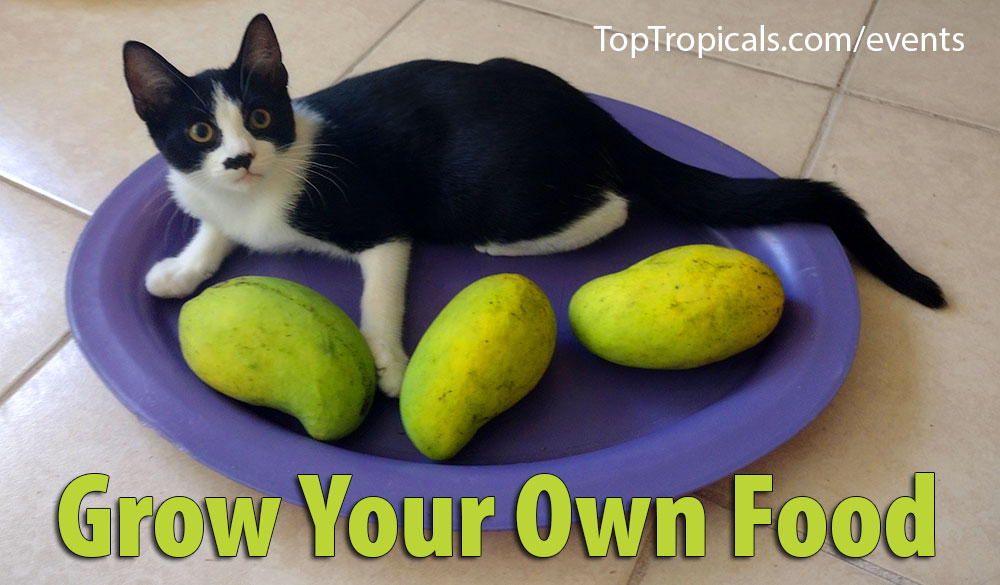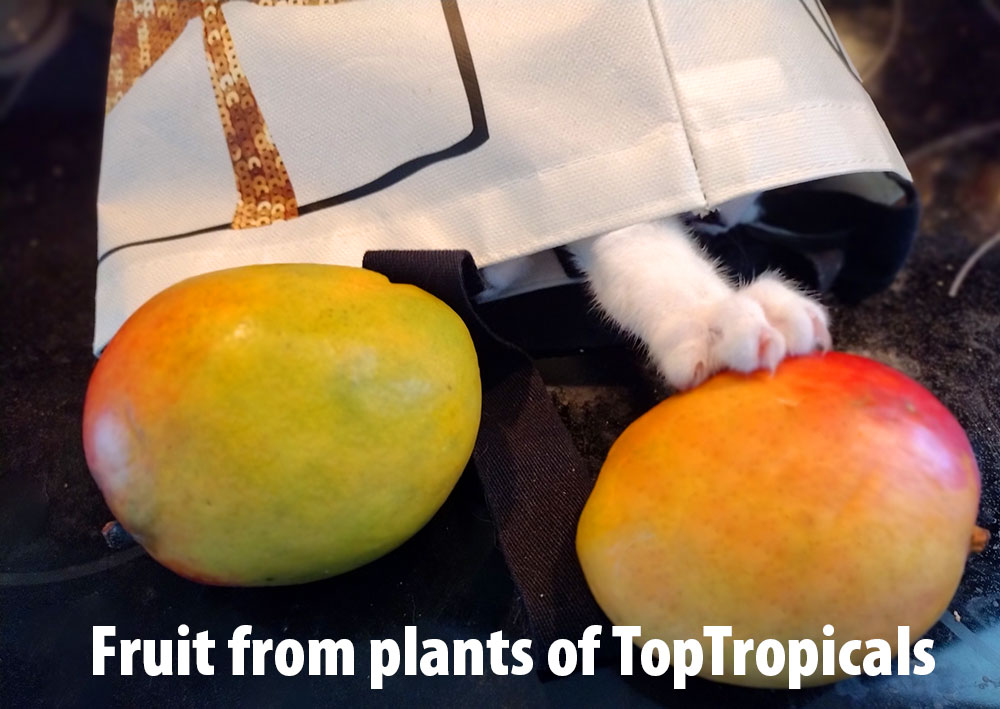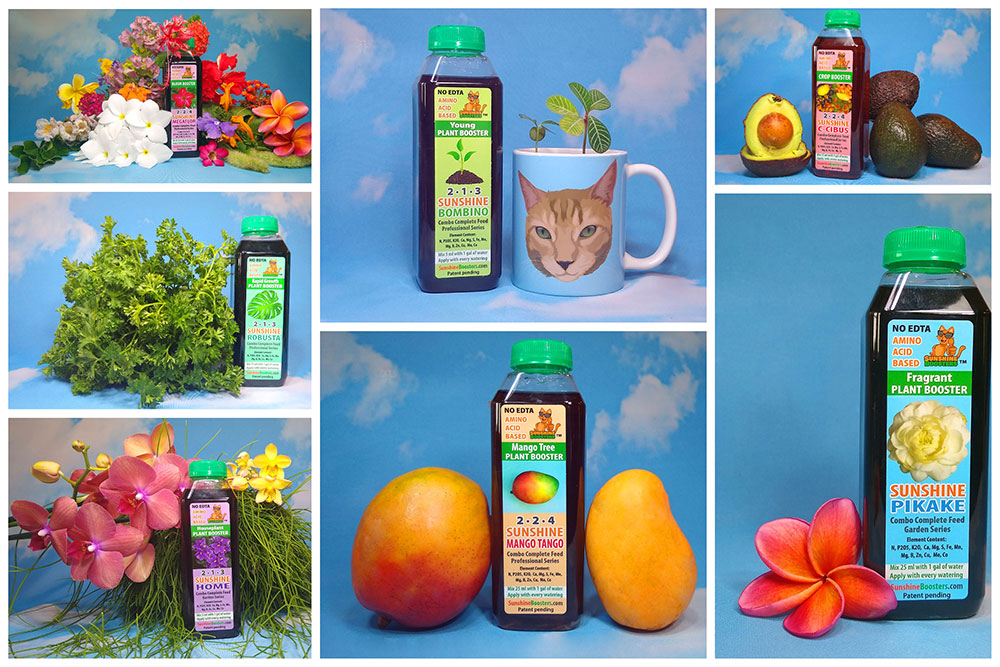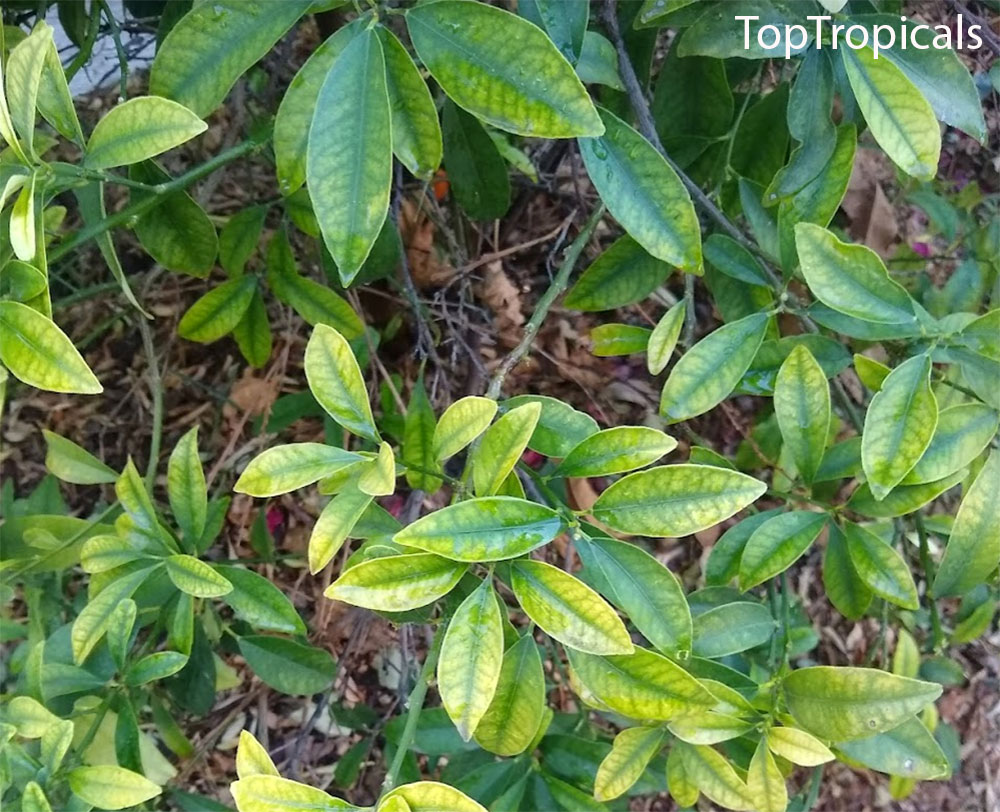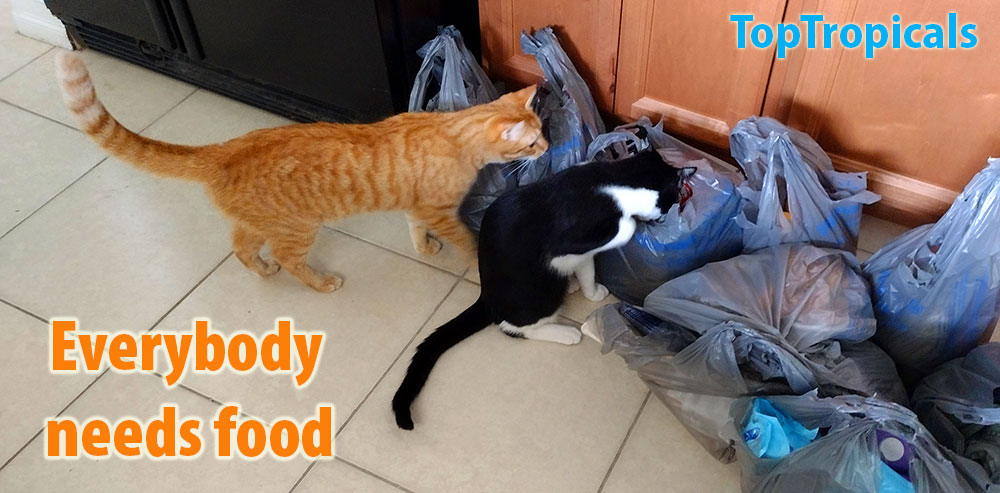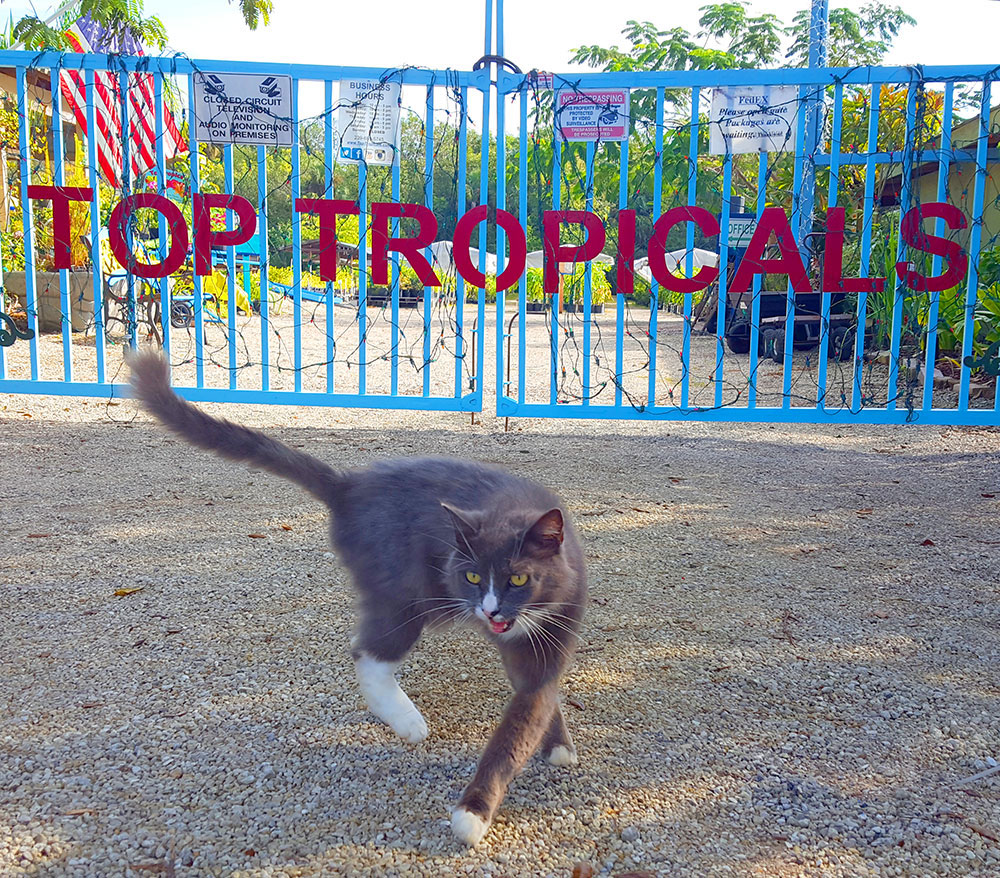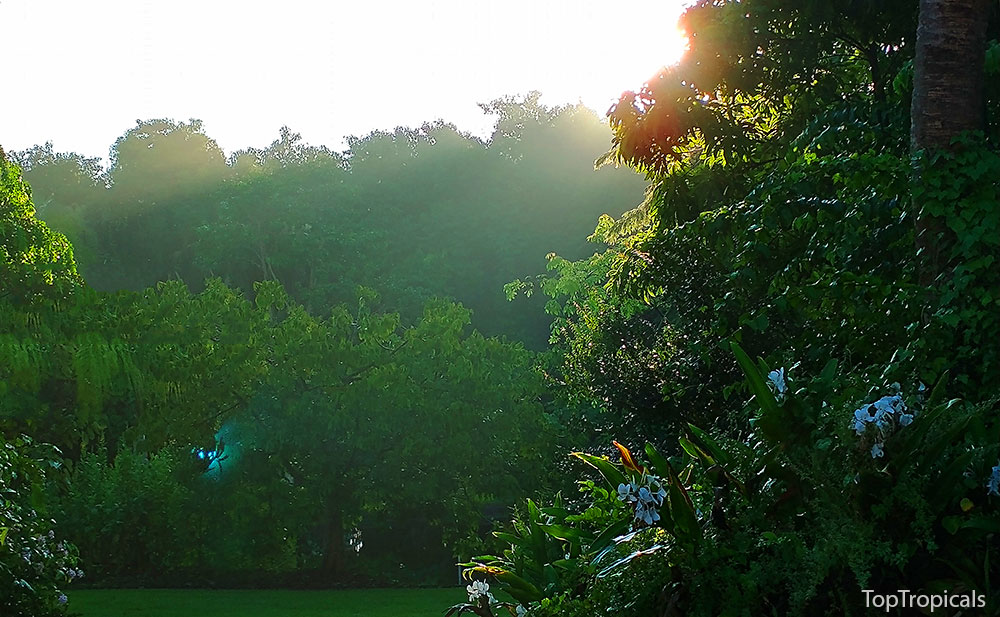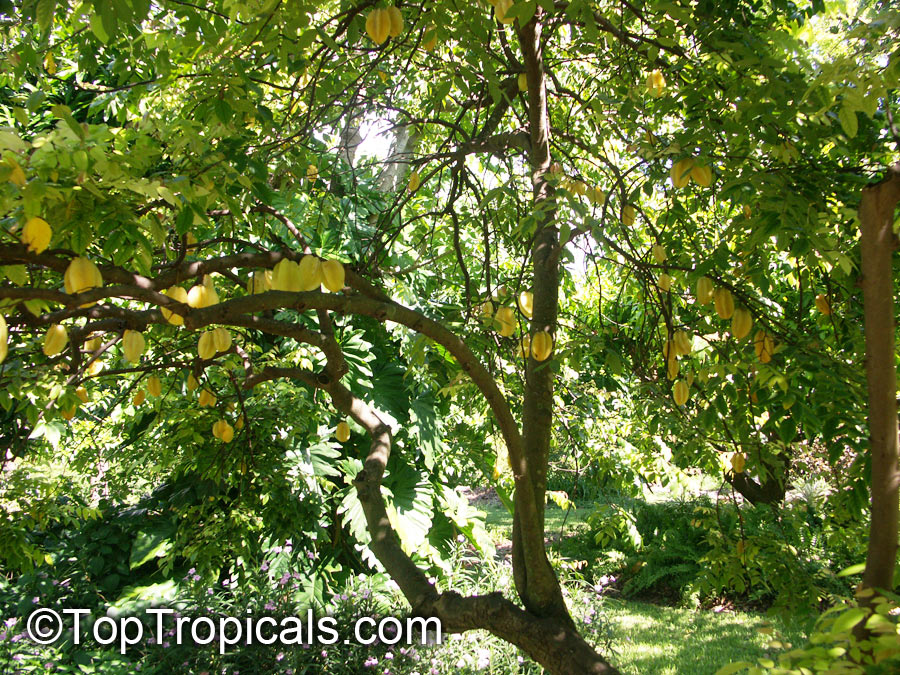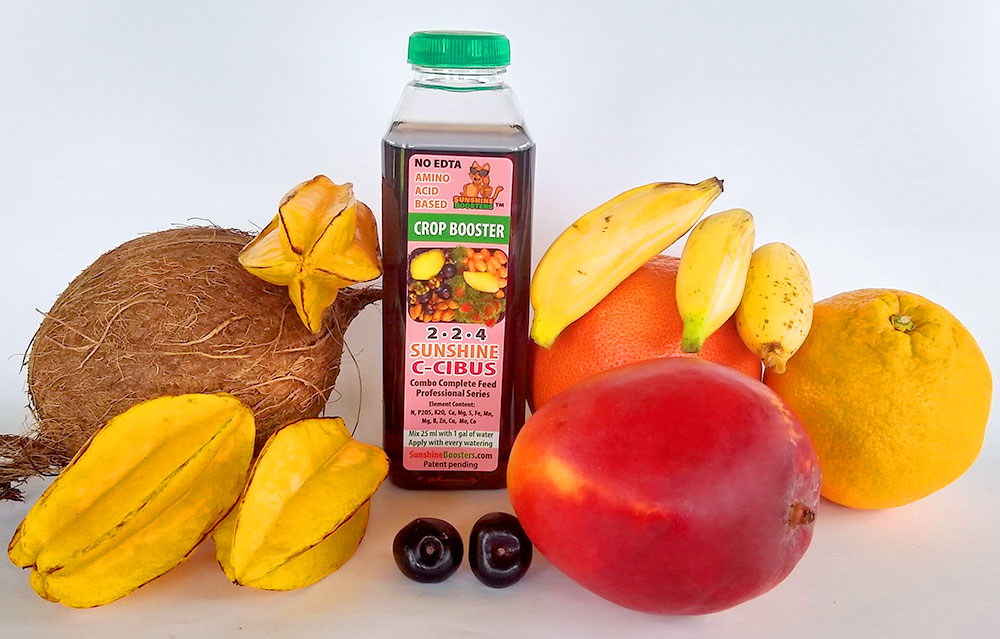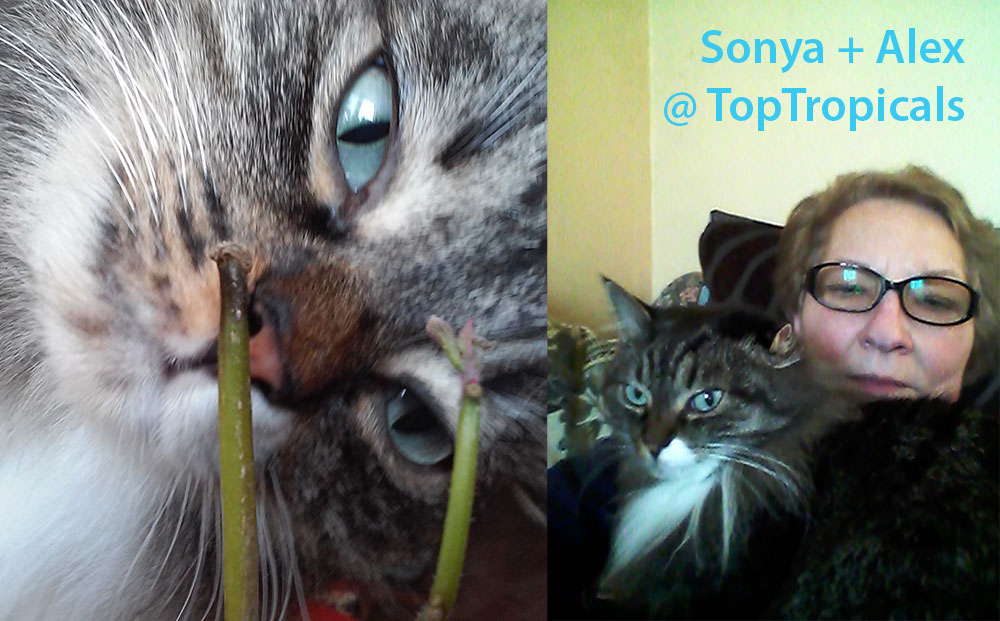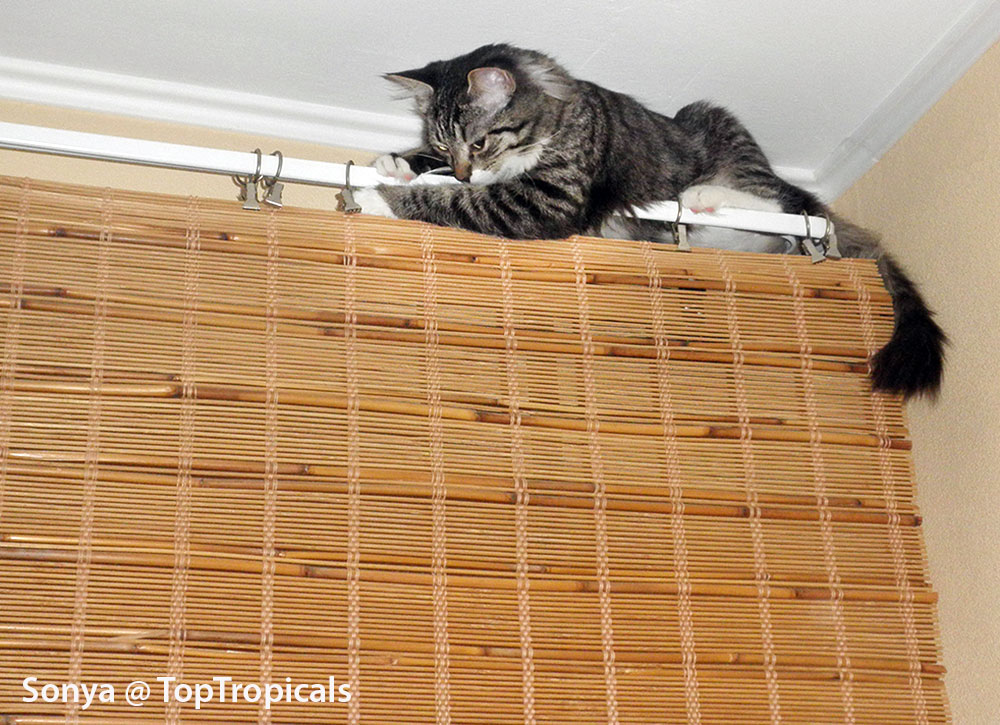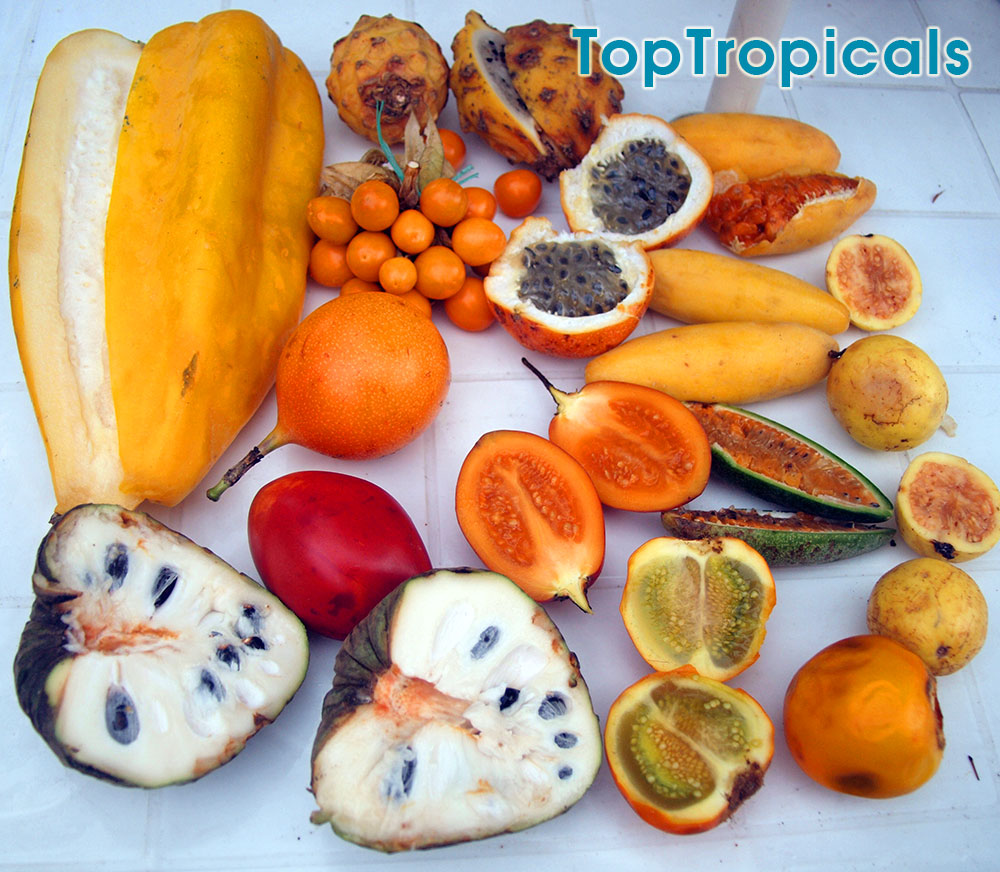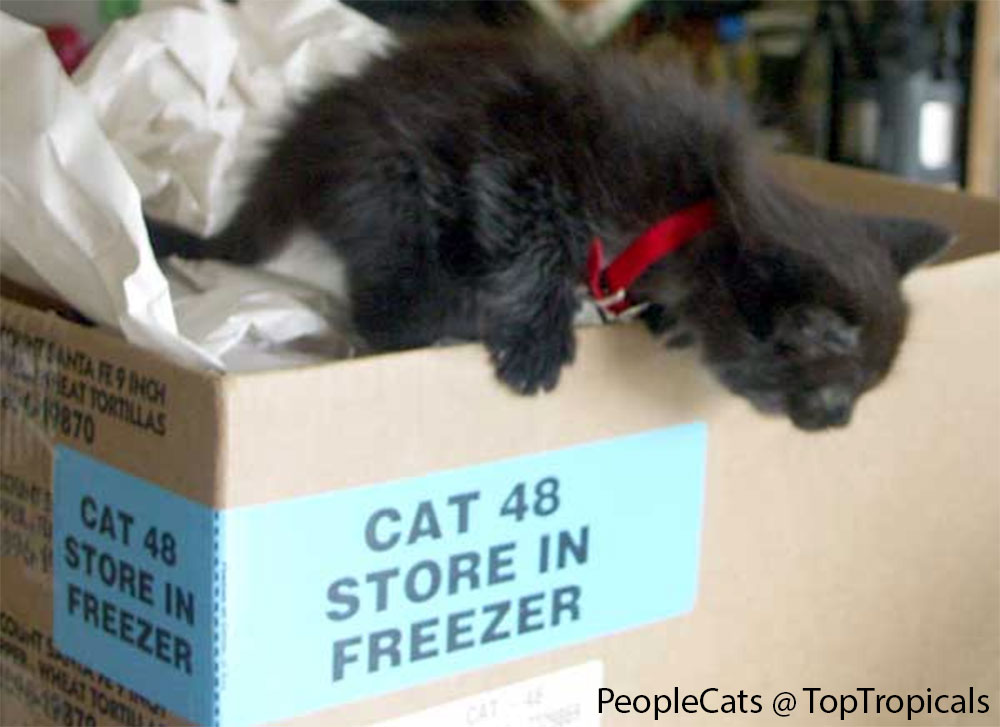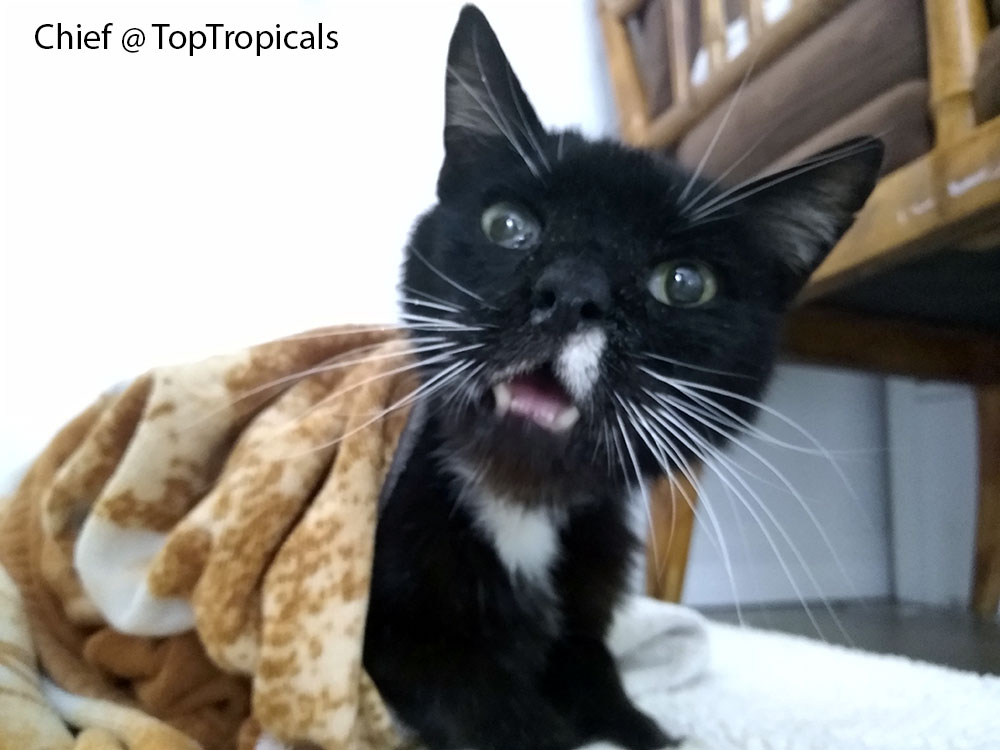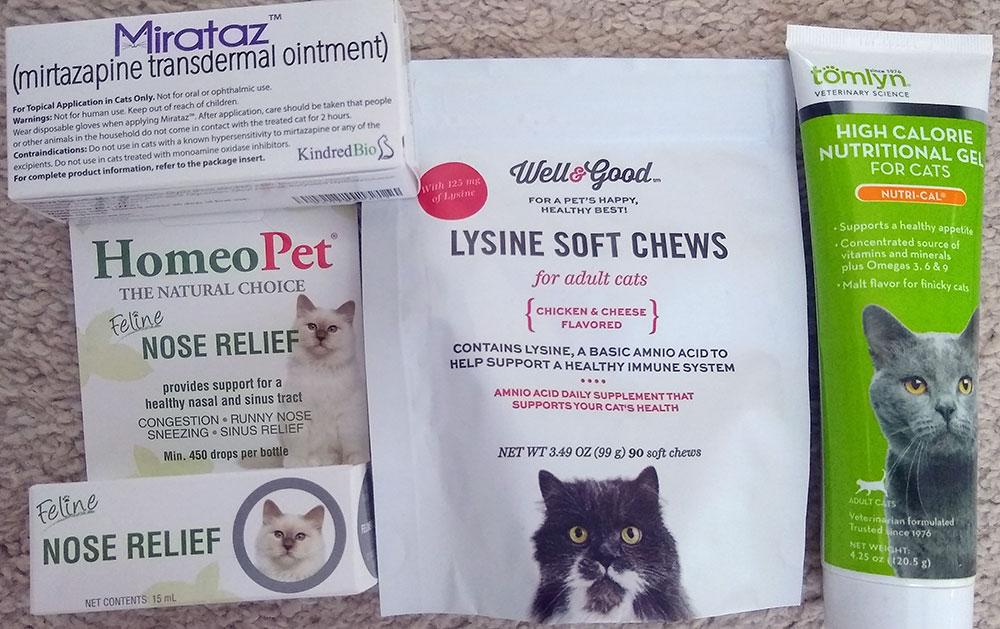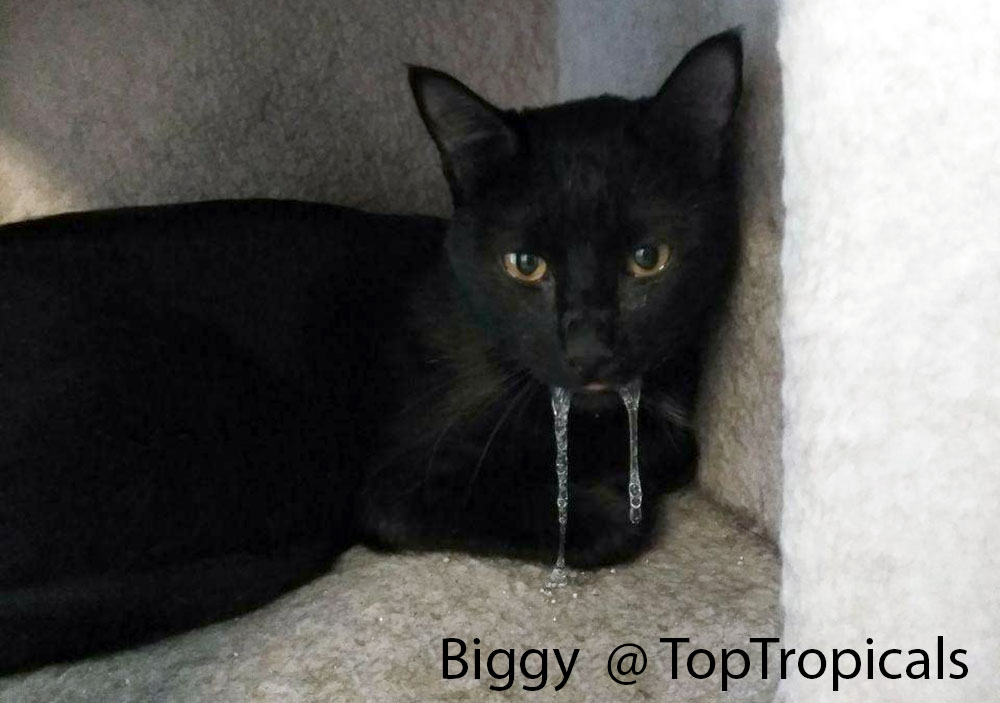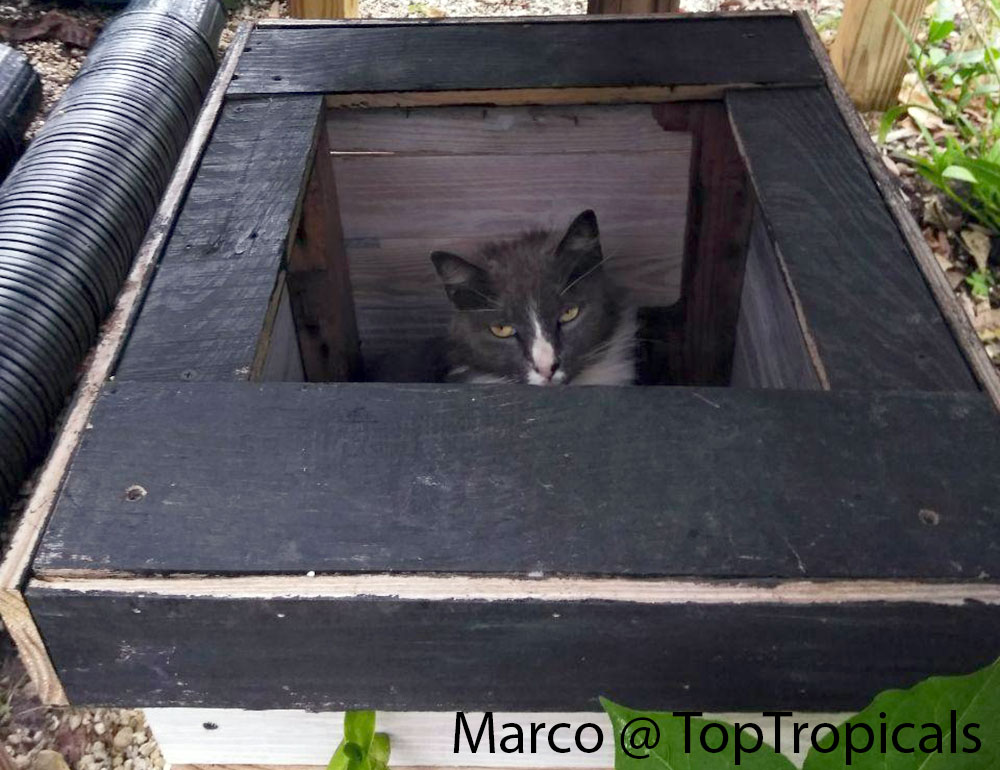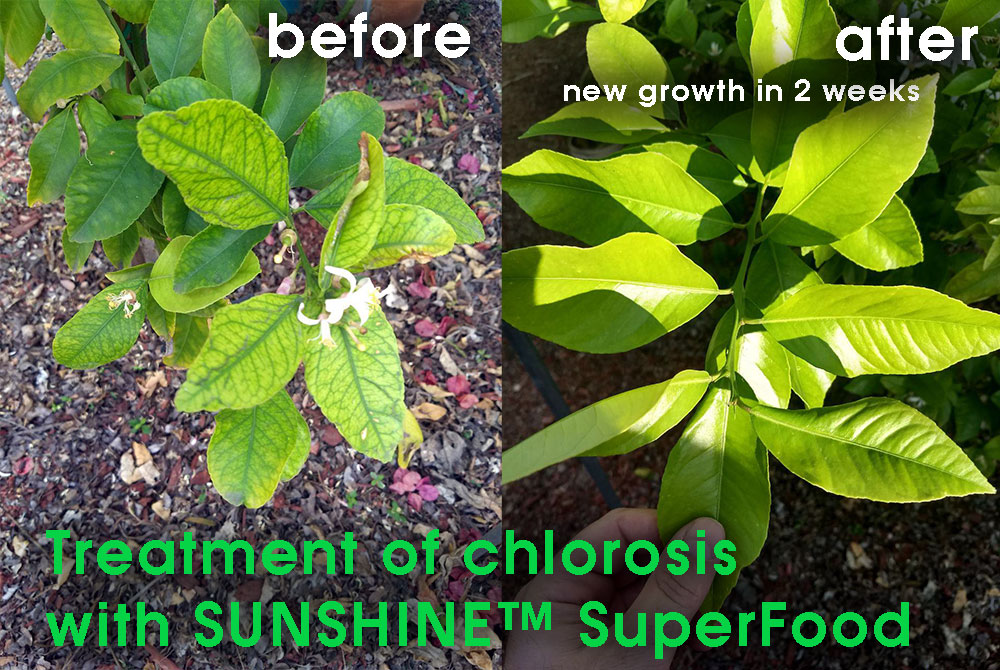Garden Blog - Top Tropicals
Date:
Grow Your Own Food...
Affordable for everyone!
Grow Food Not Lawns - this is the theme for our Garden party. But it's much more than that. It's a philosophy and a
state of mind. One that more and more people are adopting as the world's food
supply continues to dwindle and get more expensive...
Like all things plant and garden related, each of us can adopt this state
of mind at whatever level we're capable of and comfortable with. Many of our
customers just want to start small and see what it's all about. After all, the
world of tropical plants can be more than just beautiful, it can be
sustaining as well!
Growing your own food is more than just about price, it's also about quality, choices and availability. As you watch the choices, and quality of store bought food go down and prices continue to go up, maybe it's time to grow more of your own food?
Fun Facts
- A mature mango tree can produce 200 to 300 fruit per year
- A single avocado tree is capable of producing 500 avocados in one
year
- A mature papaya plant can produce as many as 100 fruits per
growing season
- One longevity spinach plant can provide you with a fresh supply of
healthy spinach leaves all the time!
At Top Tropicals we offer a wide selection of fruit, including mango and avocado, and even spinach to get you started and to continue down the road on your own self sustaining journey. Even better, to help you with your food project, we have not only added to our varieties, but we have reduced prices on many items to make it even more affordable and enjoyable!
Who is cutting prices in today's world?! - We are, because...
...it's important that we do what we can to make it easier for our customers!
We have Avocados starting at only $49.95 and Mangos as low as $79.95, with dozens of varieties in stock! Use our discount coupons to save even more, and if you're local or in Fort Myers, stop by our Garden Center and save even more!
Date:
The best Aquarium fish food ever - stikiStik
Everyone knows that Top Tropicals is good at unique, special novelties.
And it is not a secret that most plant people also are pet people - cat
people (with PeopleCats), dog people (with PeopleDogs) or at least fish people,
right?
Today we are excited to introduce our new revolutionary Fish Food developed
by our business partners at Floritin Aquarium Labs
Floritin stikiStikâ„¢ - Ultimate Aquarium fish food
StikiStik is a dry powder that you just mixed with water to create a sticky paste. The paste can be attached to any surface inside your aquarium.
StikiStik is a patent pending fish food that does things which conventional fish food does not. It introduces picky eaters to a more natural feeding environment, does not pollute the fish tank, is easy to mix from its powder format and provides gradual feeding. It is easy to apply to any surface in the aquarium, such as interior glass wall, rocks or coral skeleton.
stikiStik advantages
- Easy to use. Just mix with a few drops of water and stik it in!
Self adhesive paste can be applied to any surface. Stays intact for hours in
aquarium. Does not pollute water
- Scientifically designed and proven for all types of aquarium fish,
invertebrates, and corals
- Optimal and balanced nutrition. Contains vitamins and amino
acids
- Natural. No hormones, no artificial colors
- Stimulates fish appetite and enhances fish color
- Promotes natural feeding habits. Helps training hard to feed fish.
The perfect food to acclimate newly introduced fish, including Moorish Idol,
finicky butterfly fish, such as Copperband Butterfly, Pearscale
Butterfly, Mandarinfish, and many oithers
- Easy to store. Can be used immediately or frozen for future use
- Add any frozen fish food or medications to mix
See element contents / instructions and more information with videos on stikiStik website
- Mr Booster -
Date:
Fertilizing in Fall:
Plants need food too!
Q: I know that I am not supposed to fertilize plants in winter. But I just bought several ground orchids from you, they are blooming now and I wonder if I can give them some food to support their bloom energy? When should I do the last application of fertilizer? I will keep them in a sun room during Winter until Spring.
A: Traditionally, end of October to November is the time when we
give the last dose of fertilizer to our tropical plants. Liquid fertilizers,
and especially amino-acid based Sunshine Boosters, are safe to apply year around. This means, you can
continue feeding your plants with Sunshine Boosters through the Winter without
risk of over-feeding or burning roots. Why?
The answer is very simple: even with their metabolism slowed down in
Winter, plants will use all that food.
Sunshine Boosters have special mild formulas that are scientifically
designed and based on Amino Acids. Plants will use all essential elements from the
solution as needed.
Liquid fertilizer is diluted in water, and will be applied only when you
water the plant. During Winter, water needs are lowered = watering times are
less frequent, with less amount of water = the plants will get less water and
less fertilizer accordingly.
Importance of micro elements
in combination with plant food during winter
In the photo: winter chlorosis on Kumquat leaves that is very hard to treat and should be prevented instead
Keep in mind that feeding your plants regularly during Winter will help to avoid "winter chlorosis" and other deficiency problems. So called "cool-temperature-induced chlorosis" (CTIC) is especially common in Spring on young, actively growing leaves. Unless chlorosis is prevented by micro-element applications, affected leaves may remain in this condition for the rest of the growing season.
Make sure to select proper type of fertilizer for your over-wintering plants. We have special formulas for foliage, flowering plants, fruit trees, young seedlings, even for for orchids and bromeliads. Check out our selection!
Date:
PeopleCats Botanical Garden Grand Opening
Guided tour with Mark Hooten
Top Tropicals Garden Center is pleased to invite you to visit our new PeopleCats Botanical Garden on the grounds of Top Tropicals in Ft
Myers. It is named in honor of the relationship with our beloved Cats, who we treat like People. You'll see our Garden PeopleCats roaming the property. As a matter of fact, they rule
the garden!
The Garden has many mature trees and plants so you can see what they look like before your purchase them in our Garden Center. And of course, our
PeopleCats will be guiding you in the Gardens!
Photo above: blue light in the forest - TopTropicals Garden Ghost, the spirit is always watching!
Date:
Healthy Plant Food
Q&A from Mr Booster
Plant food for a Star Fruit
Q: I have 2 Starfruit plants from you. One on the left is B10 has a lot of flowers but no fruit is developing. On the rite is Kenjeng. This one has no flowers at all. Both plants are growing very well. Plenty of sun and water. I am located in Boynton Beach Florida. So what to do?
A: Your trees on the pictures look very healthy, congratulations
with a great care!
Starfruit, as well as other grafted fruit trees (like mango, avocado, etc)
usually flower/fruit easily and readily while in pots in the nursery.
Sometimes, once planted in the ground, they may reduce flowering or even stop
flowering. What happened?
The answer is simple. In pots, we fertilize them on regular basis. In our
nursery, we have fertilizer injector inline with irrigation system that dozes
plant food with EVERY watering. In other nurseries, they may also use
slow-release fertilizers, but it is still a regular routine to provide plant food to
potted plants.
In the ground, especially in Florida poor soils, fruit trees may stop
flowering or delay fruiting due to lack of nutrients, or dis-balance of elements
in the ground. Without fertilizer, a tree may take extra time to develop
bigger root system to reach out for necessary elements, and eventually will start
fruiting anyway.
But we want it to fruit soon! The only way to fix the problem is to provide
fertilizer on regular basis for a young tree. It is especially important
during hot summer months when plant metabolism is fast due to high temperatures,
plus nutrients may get washed away with frequent summer rains (like we have
in Florida) even if you've added some fertilizer at time of planting.
You can use smart release fertilizer once a month during hot season,
this one or similar:
Mango-Food - Smart Release Fruit Tree Booster.
But the most effective way to get a tropical tree to flowering and
fruiting, is frequent applications of liquid fertilizer. We use Sunshine Boosters
with every watering on our plants. They work great even on hard cases and
weak plants, and you see the difference in a matter of weeks, sometimes even
days.
We recommend the following fertilizer that contains all necessary elements
for young fruit trees:
SUNSHINE C-Cibus - Crop Nutrition Booster
SUNSHINE C-Cibus - Crop Nutrition Booster from Garden Series, or Combo Total Feed Collection - all nutrients in just one bottle, for fruit trees and edibles.
Date:
Meet PeopleCats of TopTropicals. Cat of the Day: Sonya, the Co-Author
In our previous newsletter, you met our editor/photographer tandem - Tilda & Marina. Today we introduce our columnist assistant - Sonya. For the past decade, this True Norwegian Forest Cat has been a great helper and inspirational co-author for Alexandra, TopTropicals website writer and social media blogger.
Alex has been with TopTropicals since Day One (2003). In 2011, she got Sonya, a 3-month old kitten that someone kicked out: at that young age she already had quite a temper of a real Wild Cat. No one wanted to adopt her and Sonya was doomed to suffer a street life... So Alex invited her in the house... and it took her many months to teach Sonya some good manners! And Sonya turned into a beautiful and affectionate Purrrson as well as became the Boss in the house (what a surprise, duh) and Alexandra's dearest life companion. Sonya also discovered her talent in writing plant stories for TopTropicals, sitting on Alex's shoulder and whispering into her ear while she is typing Sonya's horticultural tips. And when Alex stares at monitors for more than 5 hours, Sonya lays on her keyboard saying: "Now get up and get some stretch lady! Let's go re-pot some plants for a change!"
We will be following up on Sonya's creative work, and you will hear from her again soon...
Check out and more Cat of the Day stories.
Date:
When to fertilize and prune tropical fruit trees?
Q: Can tropical fruit trees (Soursop, Mango, Star fruit, etc) be given plant food any time of year? Also can they be trimmed this time of year/summer?
A: True tropical plants (including fruit trees) need plant food most of the year in real Tropics, where temperatures have very little fluctuations, and active growth season is close to 12 months a year. In subtropical areas when temperatures in winter drop below 65F, plant metabolism slows down, so it is recommended to fertilize only during the warmest period (March through November). So yes, Summer is the perfect time for fertilizing your trees; their metabolism is at the highest point and they can use more food!
Trim your fruit trees right after harvesting. Obviously, you don't want to prune branches before or during flowering or fruiting. The specific time of the year for pruning depends on the plant - every tree has its own flowering/fruiting season. However, avoid pruning right before winter: young shoots promoted by pruning are tender and can be cold damaged.
Recommended fertilizers for fruit trees:
Fruit Festival Plant Food - Super Crop Booster
Mango-Food - Smart Release Fruit Tree Booster
SUNSHINE-Honey - for sweeter fruit
SUNSHINE SuperFood - microelement supplement
Date:
PeopleCats amid COVID-Cat-20
- Mark Twain -
While the whole world is suffering the virus attack, cats are no
exception. They do not get COVID-19, but they have their own coronavirus - a
respiratory condition that may become very dangerous for them. And although cat
coronavirus does not affect humans, we can transfer it to other cats
through our hands/petting, shared bowls and bedding, etc.
At TopTropicals, we had several cats sick with the flu and it took us a
long time and long hospital bills to bring them back to health! Below we are
sharing with you a few tips from our own experience that may help you fight and
treat cat coronavirus, that we call "Covid-Cat-20".
How to treat Cat Coronavirus
When cats get a flu/virus/cold, they suffer congestion, sneeze and cough. Just like us humans. But for cats, stuffed nose is much worse trouble, because they can't smell food = they won't eat it! In tough cases, they won't even drink any water. Due to specifics of cat metabolism, if a cat doesn't eat and/or drink for more than a couple of days, it may become life-threatening. It is not the virus that kills a cat, it is dehydration, lack of nutrition, and possible secondary infections.
- Vet. During Covid-19 lockdown, many animal hospitals are
closed, but if you are lucky to find a vet, it is wise to give the cat a
long-lasting shot of antibiotic. You can't treat a virus with antibiotic, but it will
prevent secondary infections (like pneumonia, etc.)
- Water is absolutely essential! Make sure your Cat drinks water. If
he (she) doesn't want to drink on his own, you need to give him water with a
syringe. As often as you can. Little by little. Or, ask a vet to put a
"water pouch" under cat's skin. This will save the cat from dehydration.
- Food is the main key! Your cat must eat a normal size portion per
day in order to fight the illness. Because he can't smell, it's possible he
won't eat on his own. Offer him a smelly, soft/wet food of room temperature or
slightly warmer: usually tuna works well. Get Salmon Oil and put on top of the food: it is smelly, plus a great
vitamin supplement.
- Hand-feeding. If congestion is bad, even a smelly tuna may not
help. Mix a spoonful of pate with some water and try to hand-feed this "soup" to
the cat either using syringe, or a small spoon. Little by little. Remember,
his nose is stuffed and he can't swallow and breath at the same time, so it
must be tiny bites. (Wrap the entire cat tightly in a large thick towel to
save yourself lots of scratching damage, leaving out just the face. Guaranteed,
he won't like the procedure and you will be surprised how strong he is for a
sick cat.)
- Supplements. For an extra nutrition support, you may use Critical nutrition food and other protein supplements. Consult your vet
and you may want to try the following aids: High Calorie Liquid or Gel
(easier to administer), HomeoPet Nose Relief (for de-congestion), Lysine
Soft Chews, and Mirataz ointment (to promote appetite).
- Rest. Keep the cat indoors, in a warm place, away from drafts.
Cover with a towel to make comfy. Keep lights dimmed. Change bedding, towels,
blankets at least daily to keep clean, get rid of germs and drooling
accidents.
- Quarantine from other cats, the cat coronavirus is super
catchy! Find that spare room. Bleach, soap, alcohol and Hand Sanitizer - are your friends now to maintain germ- and virus-free
environment.
- Mild cases. Some cats have mild symptoms (we've noticed that black
cats and tuxedo cats are more susceptible regardless of age). In this case,
do not panic - just give them time to recover. Lots of rest, privacy, and be
sure to monitor water/food intake!
- Tough cases. Most cats look lethargic when sick. At some point, if
within 3-4 days you don't see improvement and the coughing continues, you
need x-ray to rule out pneumonia.
Stay well and healthy, PeopleCats!
TopTropicals PeopleCat Club
Thank you everybody for supporting us in helping PeopleCat Community!
Make
your kind donation today and receive a surprise gift from us. Every little
bit helps! Thank you and God bless you and your pets!
Date:
Plants of Love. TopTropicals Webinars
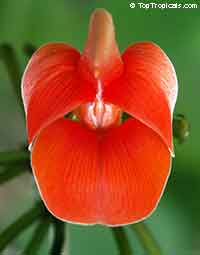
Plants of Love - Valentines Day Sale. For Valentines day, look beyond roses for a plant that will last a lifetime! It is not a surprise that the most popular plants that has been ordered from TopTropicals for Valentines day for the past 3 years, are: Vanilla, Chocolate, Grape, Strawberry tree, Rose apple - all things you get for your Valentines!
This year we are celebrating Valentines day with our special local event - "Aphrodisiacs, or Plants of Love".
When: Saturday, February 11, 2017, from 10 am to 2 pm
Where: Toptropicals Garden Center, 13890 Orange River Blvd, Ft Myers, FL 33905
Agenda:
10:00 am - Explore the grounds: Customers can come in to look through the nursery and guided tours through gardens.
12:00 pm - Aphrodisiac plants. Class on plants used for aphrodisiacs throughout history.
1:00 pm - Plant giveaway. Must be present to win one of the aphrodisiac plants in lecture.
2:00 pm - sale ends.
Special Love Discounts for local visitors! Snacks and drinks.
Just a few examples of the most famous plants of love that we will be talking about -
Coffea arabica - in East Africa and Arabia it was a sacred beverage to African sufis. For aphrodisiac results mix in cardamom and honey.
Banisteriopsis caapi, Ayahuasca - giant liana from tropical Amazon forests psychedelic, ritual inebriant that promotes potency. Drink is made from the bark and is taken in love rituals to revive the mythical past of the tribe.
Areca catechu, Betel Nut - seeds have stimulating effect on the entire body and eros. It's a traditional aphrodosiac in Ayurvedic medicine and is counted among the eight types of pleasure in the Brahmanic tradition. It has magical and religious properties and used as an offering to the Gods.
Theobroma cacao, Chocolate - mild stimulant, beans contain aphrodisiac. Antient Indian "recipe of chocolati" will be shared at the event! Cocoa was considered the "food of gods".
Cinnamon - in Southern Asia used as stimulant, in food or massage oil for erotic stimulation.
Cola nitida, Cola nut - used in love magic, was used as currency in W Africa.
Cananga odorata, Ylang-Ylang - increases eroticism with oil inhaled. Prescribed to treat impotency and frigidity.
Butea monosperma, Flame of The Forest - is traditionally used to manage male sexual disorders.
Mimosa pudica, Sensitive Plant - significantly increases the libido and hormonal levels of testosterone.
Satureja Viminea, Kama Sutra Mint Tree - used for love gel...
- and much more!
TopTropicals Webinars. Welcome to Top Tropicals Webinar! Discover the world of Rare Plants and surround yourself with a Tropical Paradise! Our plant experts will be answering your garden questions. Our next LIVE air time is just before Valentines Day - Saturday February 11, at 2 pm ET, with a topic of... of course, Aphrodisiac Plants! Get your questions ready!
Date:
Helping Citrus and other fruit trees with Nutritional Supplements
Q: Can you recommended a product to help with my citrus? Combating greening and chlorosis.
A: Citrus greening is spread by an insect called the Asian citrus psyllid. The psyllid feeds on the stems and leaves of the trees, infecting the trees with the bacteria that causes citrus greening. Florida Citrus growers dedicated the last decade to researching citrus greening. Officially, currently there is still no cure, however, some Nutritional solutions have shown promising results. To slow the progression of citrus greening in infected trees, nutrients are applied to the leaves and to the roots. Providing better nutrition helps trees fight against citrus greening and enables them to continue to produce quality fruit.
We recommend the following products for use on regular basis:
SUNSHINE Epi is a natural Brassinosteroid plant hormone and a bio-stimulant that may be very effective as citrus greening treatment. It works through plant's immune system and shows amazing results of recovery of weak and sick plants.
SUNSHINE Superfood, a complex micro-element supplement, maintains plant's health and provides vigorous growth.
SUNSHINE-Honey is a basic nutritional complement, it contains essential plant micronutrients Boron (B) and Molybdenum (Mo). These elements are essential to vegetative and reproductive growth, cell expansion, tissue growth, and fertility. A very common problem for most unimproved garden soils is lack of Molybdenum and Boron as soil micro-component. This results in underdeveloped / low quality fruit and/or premature fruit drop. Applying SUNSHINE Honey on your fruit trees will fill that gap and help a fruit tree to form a healthy fruit.
Macro-nutrients should be applied in combination with micro-nutrients on regular basis:
Mango-Food - Smart Release Fruit Tree Booster (works great for all
tropical fruit trees)
Fruit Festival Plant Food - Ideal blend designed to improve fruit trees
health and vigor, and increase crop yield.
See SUNSHINE Boosters page for the complete list of plant boosters.
